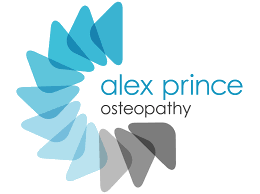I had a telephone enquiry last week asking how can Osteopaths in Bristol help patients with slipped discs, and seeing as this isn't an area I've covered in my Bristol Osteopath News before, I thought it would be good to write about it.
It's been estimated that up to 5% of all people will have back pain at some point in their lives caused by a slipped disc.
Slipped discs are more common over the age of 30, and men are twice as likely as women to suffer from a slipped disc injury according to statistics.
What is a disc?
The intervertebral disc is a squashy structure that sits between each vertebral (spinal) bone throughout the spine.
Discs are sometimes described by Osteopaths in Bristol as being like jam doughnuts with tough outer casing and a soft bit of jam in the centre.
Discs are like washers, spacing out the vertebrae and acting as shock absorbers to cushion the spine.
In the low back, our discs are bigger and take a lot of compressive loads.
What is a slipped disc?
The correct term for a slipped disc is a Herniated Disc or Prolapsed Disc in its more serious form of injury.
If the tough outer part of the disc is damaged or splits, the 'jam' in the middle pushes out.
It can just bulge slightly but can be herniated outwards or even prolapse so the 'jam' part pushes out from the disc.
This causes pain, inflammation and often a level of disablement for a patient visiting my Henleaze osteopathy clinic.
The most common area of disc damage I see as a Bristol Osteopath is in the base of the spine where the daily loads are greatest.
If more serious, it can irritate the spinal nerves causing leg pain or even loss of leg function. This is sometimes referred to as Sciatica, named after the Sciatic nerve passing through the back of the leg.
The neck can also suffer disc injuries, usually as the result of long-term wear and tear or an injury.
Most disc injuries I see as an Osteopath in Bristol are very painful for patients, but will often resolve with careful management, rest and can be helped with gentle manual therapy treatments.
In more serious cases where nerves are significantly affected it may result in surgery to remove part of the disc itself to alleviate pressure and irritation on the nerve.
Can Osteopathy in Bristol cure a disc injury?
Osteopathy in Bristol cannot cure a disc injury, but there is good evidence to highlight that careful treatments by an Osteopath can aid recovery.
Osteopathy looks at the patient's body as a whole.
Working on areas local and distant to an injured disc can help to alleviate the symptoms, and improve general tissue health as well as the process of repair.
Osteopaths in Bristol are well-placed to offer advice on managing a disc injury, and can offer specific exercises to assist with rehabilitation after a disc injury.
What causes a slipped disc?
Poor sitting, bad posture and sitting for long periods without micro breaks is bad for back health, and will adversely over-load discs.
Poor lifting (and not necessarily of heavy weights) with bad lifting technique puts the low back under strain.
How can you prevent getting a slipped disc?
These are my favourite ways as a leading Bristol Osteopath to help patients to prevent getting a slipped disc:
Minimise sitting, micro break (get up and move regularly)
Sit well, good posture
Avoid prolonged sitting on soft, low seats/sofas
Take regular exercise
Drink water to hydrate the discs
Build good Core Strength with pilates, yoga and general exercise
Try to reduce carrying extra weight to lessen disc strain
Read this blog post on how to sit well and reduce back pain.
Check out my advice here on how to reduce joint pain during colder weather.
Read how Osteopaths in Bristol help patients with low back pain.
If you have suffered from a disc injury, please book a consultation with me online here.
My Bristol osteopath clinic is fully open so if you’re looking for Covid-safe treatments, please read this news post to find out about the measures in place at my Henleaze osteopathy clinic for all patients.
To find out more about the full range of Covid-secure osteopathic treatments that I provide in Bristol, please visit here for details.

